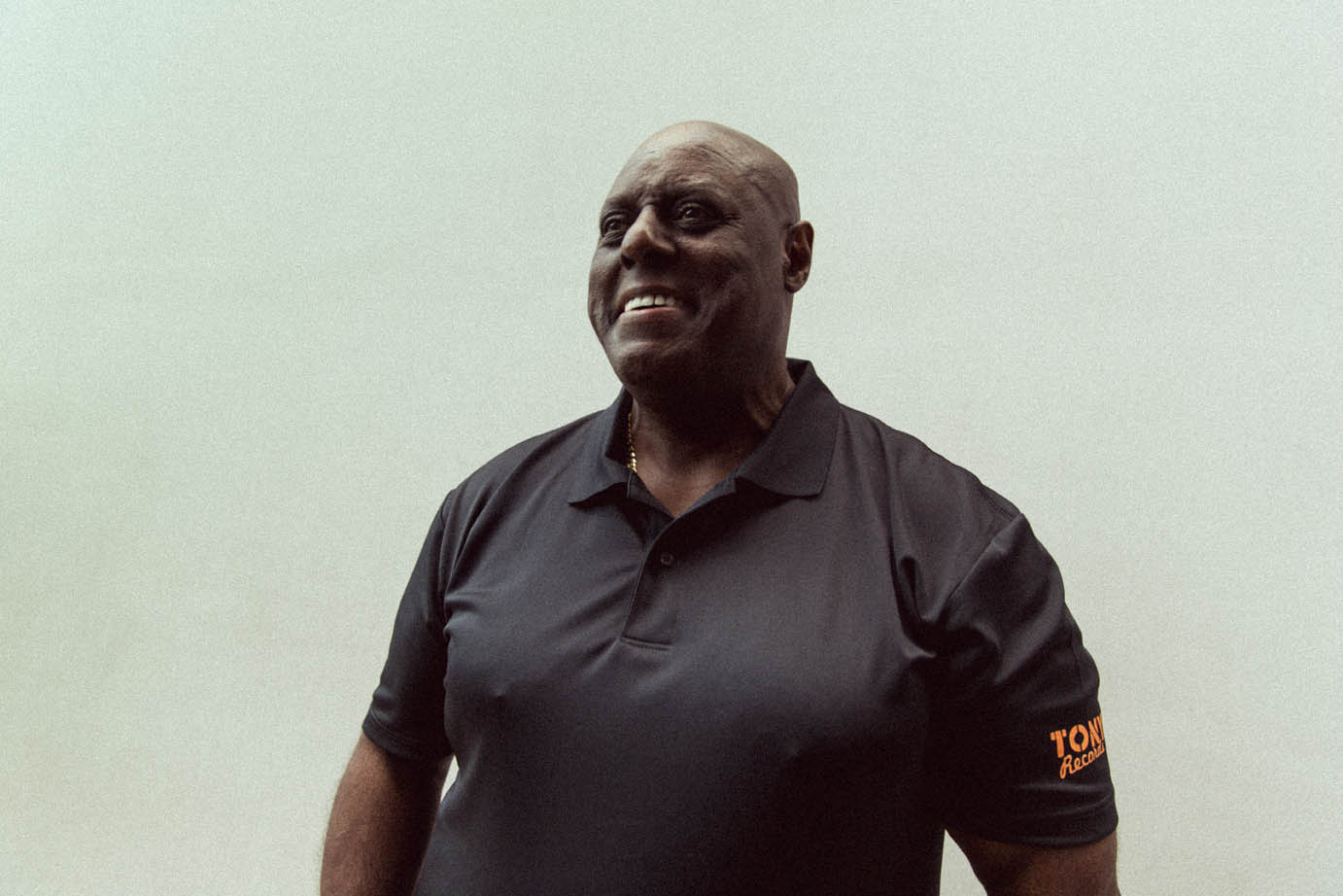Tony Humphries Has Been Awake Since Zanzibar
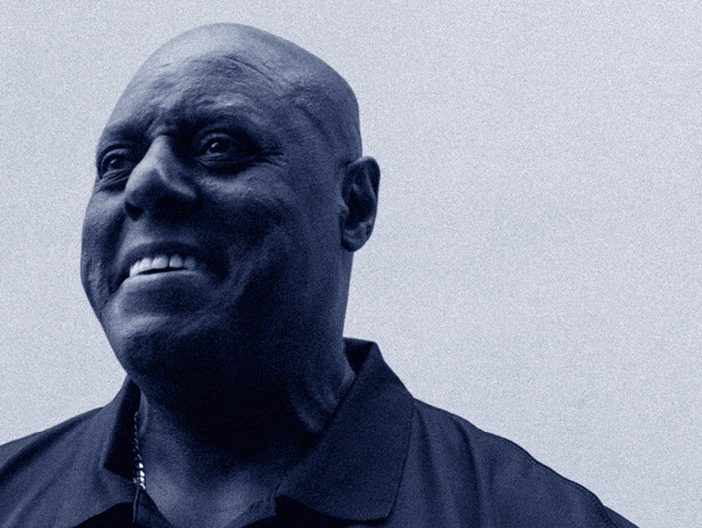 Thirsty for JUICE content? Quench your cravings on our Instagram, TikTok and WhatsApp
Thirsty for JUICE content? Quench your cravings on our Instagram, TikTok and WhatsApp
At 57 years old, Tony Humphries still plays the kind of lengthy, three-part sets DJs of his time were known for back then – almost like he hasn’t slept since the glory days of Club Zanzibar in New Jersey. Having seen him spoke, and having personally talked to the rotund vet, Humphries doesn’t look like he’d slow down anytime soon either. The dance legend is more animated than the younger lecturers at Red Bull Music Academy 2014 in Tokyo; infectious, big expressions, hyperbole-inclined, commanding voice, and incredible lucidity despite now being decades apart from the heydays of the ‘80s. You could say, at the time, he was the fun uncle figure to Jah Shaka’s proselytising paternal figure. Having trekked the early dance boom with genres as far ranging as house, garage, soul, and the sonic smorgasbord that was the ‘New Jersey sound’, the New York-native was just like his original city; an embodiment of diversity. JUICE took the opportunity to discuss with him the lost art of a midnight to 11 o’clock in the morning DJ set and was rewarded with a whole lot of reminiscing…
Back in the days at Club Zanzibar, you played till 11am. With the current generation at least, that set length hasn’t happened in a very long time. Was there an art to playing long hours that might be lost in today’s era?
It’s basically three sets. You know how people are used to playing one set or two sets, right? For me, it was three sets; it was maybe 1am till maybe 3.30am or 4am in the morning, and then after the PA or show, as we call it ‘a live show’, it will be 4.30am or 5am till about 7.30am. Then from 7.30am to whenever people decided to leave, you know? I flipped the percentages around of different types of music. In other words, knowing your clientele, knowing that when I walked in, there were somewhat commercial people there who were there from 10 o’clock that evening, you know? Then they got to be in the big room with the big sound system. I would play sort of commercial things, I mean, not a lot of it… but more familiar stuff to them or familiar artistes — let’s put it that way. And I knew that they were waiting for the show, the PA, that’s why they had to pay extra. I would again do 50/50 with like Chicago stuff, stuff that was on the radio and maybe one or two underground things but nothing that much. Then, once the show was over, I knew they were tired and they were there long enough, like five hours or six hours, that’s enough you know? So then right after the show, I would start over slow again, I would start off like about 110bpm, sort of work my way up and because right after the show they would start to clear, a third or fourth of the people would start to leave. And you would have this nice group left, around 7am or 7.30am, then I would start slow again and build up. But the third one would be sort of the best quality records that I had. It had to be Philly International or Quincy Jones sort of orchestration. The quality of the music itself had to be of a certain standard for the core. Let’s say the core 500 or 600, you’d know what they wanted to hear.
It’s like rewarding them for staying back.
Yeah, yeah. They would come in four in the morning, five in the morning. They would try to have patience for an hour or two because they were waiting for [it]. They were picking out the commercial people (laughs). “Go home already, go home! So we can hear what we like!” You know? So I went through that phase. What I play in the beginning of the night is rarely what I would play in the end of the night. Unless there was one new song that I felt they reacted to. And if there were a song, a new song they reacted to, I would play it three times. I would play the first time in the early set, I would try it out again right after the show or the PA and if I got the same response – whistles and yahoos and all that – then I knew, if it worked for those two sets, I can play the third one. That’s the only way I would play that song during the third set – because they reacted to it twice in the first two. So, that was my strategy the whole time.
“We gave the impression that the club was closed but there would still be two or three hundred in the corner somewhere, saying ‘shhh…'”
Is the culture of partying till 11am still around in New Jersey?
Yeah, well again, it depends on what day it was. We were lucky because it was inside a motel, so we had the opportunity to sort of close the door (laughs) when people were supposed to have left. We gave the impression that the club was closed but there would still be two or three hundred in the corner somewhere, saying “shhh…” Then we would lock the door and we would party for another two, three hours.
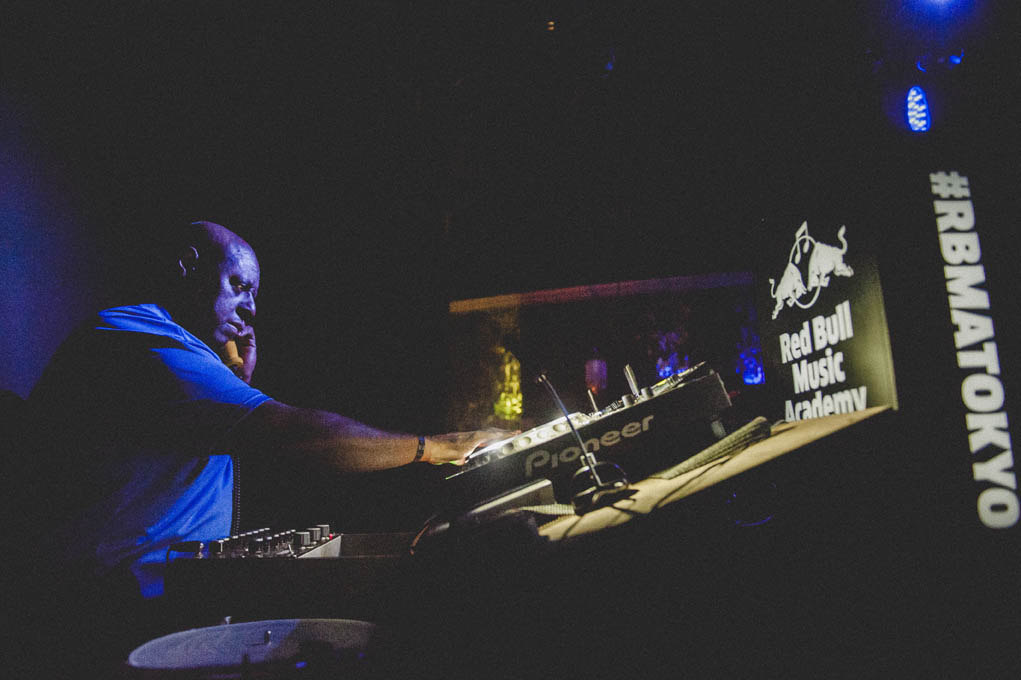
And just you alone the whole night?
Yeah.
Wow.
I mean, obviously I had help. Guys who were around me, helping with the radio, shows, transports, you know, guys who work around there. But for most of the night, yeah. I was glad to have other people play because it was long hours…
Really, really long.
Yeah, yeah. I mean I don’t know if I could do… do that long anymore.
But even to be able to do that back in the day is incredible.
Yeah. That was my whole thing [I learnt] from the Larry Levan garage thing. I saw him do it, I was like “Man! I don’t know how he could do that.” I wanted to challenge myself, that’s what it was, challenge myself musically. You knew you couldn’t just play Top 10 records, you know you can’t just play popular stuff and get away with it. He was lucky, he had a carousel – his library in this furniture in the booth. It’s his collection in the booth. So he was picking all types of things, so that made it easier I guess for him to do that. I was just amazed, “It’s in the morning, he’s still going! Man, man. Can I do that? Can I do that?” And that’s what I wanted, I wanted that really bad when I got in Zanzibar.
You did it.
Again, I cannot play for an hour. It’s just not in me to do that. A lot of DJs can do that, I can’t do that. I’ve practised this three-set thing so much, so long, that it’s just impossible for me to do.
“You wanna show your whole library. You wanna show what you like, different types of music, what you used to play and what’s new.”
Sometimes, some DJs refuse to play for more than an hour or what they’re contracted for. It’s just a sad thing, don’t you think?
(Laughs) You wanna show your whole library. You wanna show what you like, different types of music, what you used to play and what’s new. I mean when you play that long, it doesn’t matter if you’ve got a new song or not. It’s only five or ten minutes. You know what I mean? You’re not gonna keep repeating it. You really got to show your repertoire, your library as I call it, which is a challenge. It’s fun to me. Out of all the songs I would repeat in a night, it had to be less than three. It’s a good mental exercise for me.
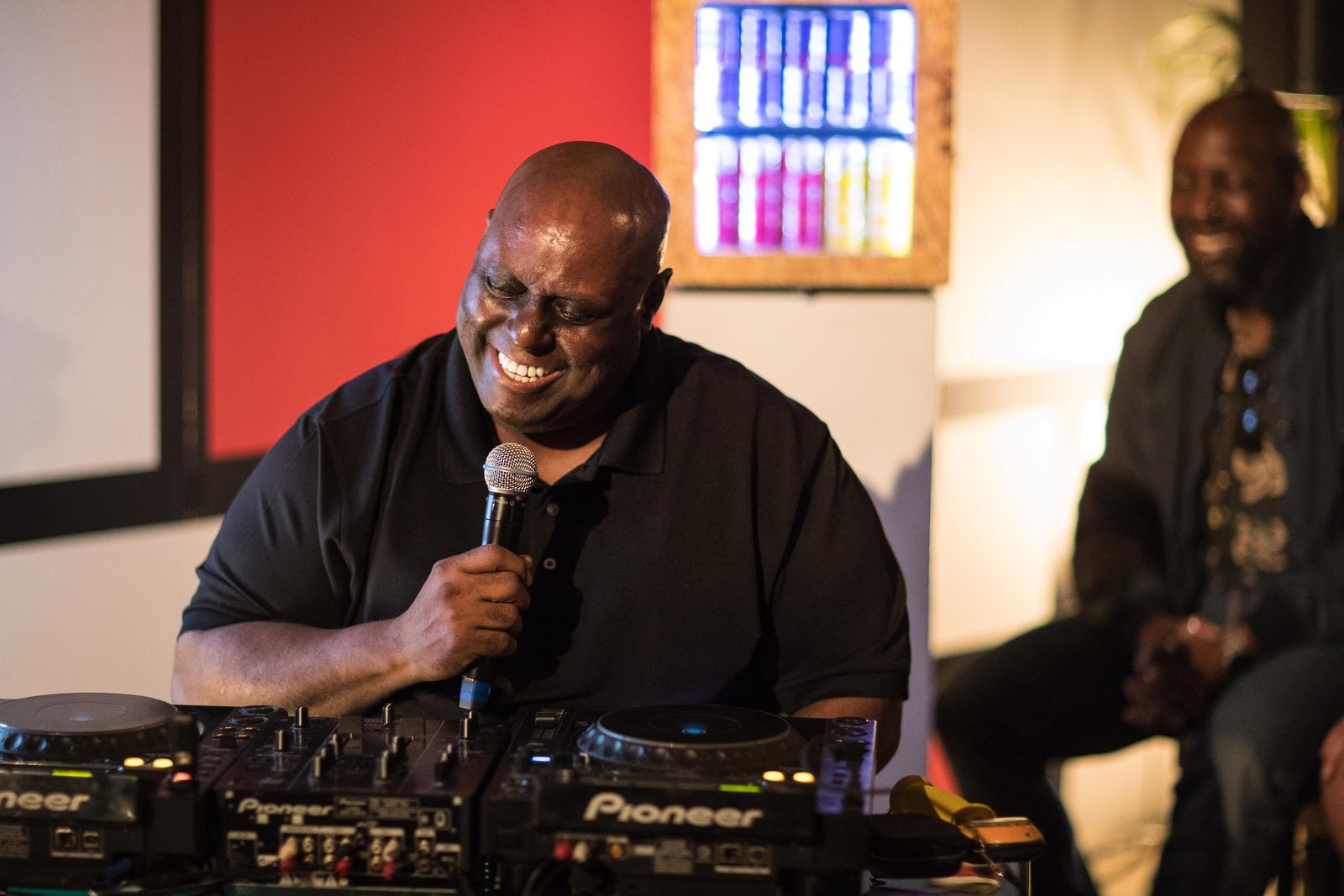
What’s the average amount of time you play nowadays?
Nowadays? Average is, for what I usually get booked for, I’d say three hours, three and half hours, something like that. Depends on which gig it is. Some will ask for four.
“I get angry if [the set is] only an hour, an hour and a half.”
Still double of most DJs.
(Laughs) I get angry if it’s only an hour, an hour and a half. Like when I did Southport, it was so difficult for me sometimes because we only had an hour and forty-five minutes. You know, I gotta try to cram everything… you know, get it in there! You know, you can’t groove.
There’s no time for a build-up.
No. No.
It has to peak all the time.
I gotta know what I’m going to play. Almost pre-do it, almost! Like, saying “I only got an hour and a half,” so that means the usual CDs with 11 songs, you know if you were doing a CD or something. So you figure an hour and half is like fifteen songs, so you gotta know. What you’re gonna be playing or you’re gonna be pissed like, “Ah I didn’t get a chance to play this song! Oh I didn’t get to play that!” So, something like that, it’s difficult to play short sets, but we do what we gotta do.
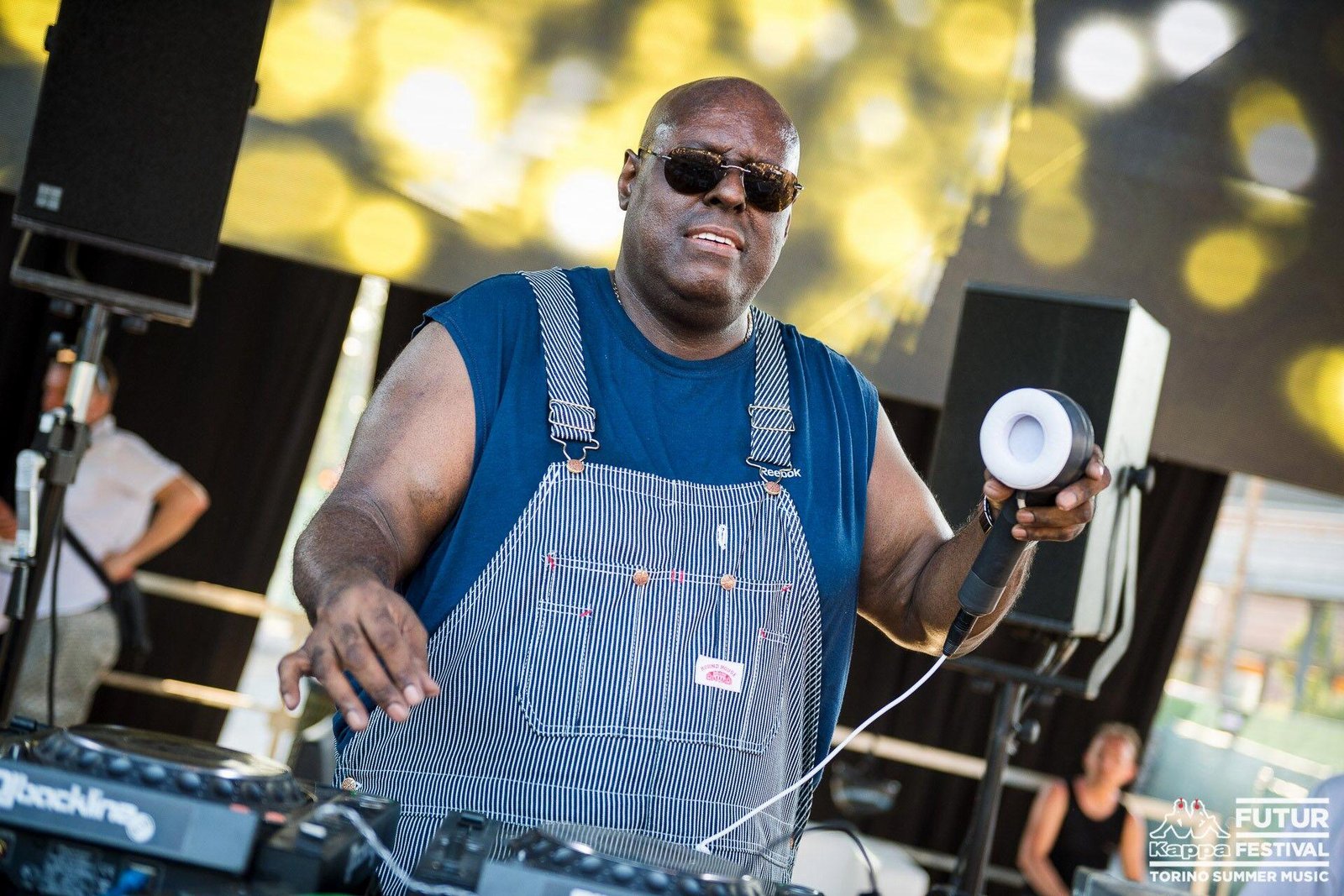
“We all didn’t just play one type of style of music when you came from New York, as far as I’m concerned.”
Chicago has house, Detroit has techno, and New Jersey, that sound they were describing in the documentary. What about where you were from, New York?
Well, I am not gonna try to disassociate myself from New Jersey. But coming from New York, okay, I was used to the diversity already anyway. I started out being diverse. You understand what I mean? I used to go to punk clubs, I used to go to different types of clubs. You know, we were hungry for different types of things. When you went to the record store, you went to Vinylmania, you went to Rock & Soul, you went to so many stores, and there were so many different types of things that, you know, I don’t know what to say. We all didn’t just play one type of style of music when you came from New York, as far as I’m concerned. So when I got to New Jersey, I just brought the same variety and I tried to add whoever who was local from New Jersey on to that. If you were a person like myself and used to buy imports, and everything was imports. For you guys, it was imports, the Americans stuff. For me, you know, I was always buying like British stuff, Italian stuff or whatever, you know. I was buying a lot of that stuff. So, I was diverse from back then. The fact that whatever they were doing in Chicago or Detroit, I mean, look at that! I was playing ‘Voodoo Ray’, which I mixed with A Guy Called Gerald. I mean it was just diverse with a lot of stuff, really. Put it this way, I don’t think we really cared about where it came from. The only thing we knew was that, “Oh, we had to pay two dollars extra because it was coming from Europe.” (Laughs) You know what I mean? But it wasn’t sectioned off by state like, “Oh, that’s a Florida record, Oh, that’s a California record.” We never thought of it that way, but except for Chicago. The amount of tracks that they were coming out was such a large amount, a large amount. I mean, I had a section in my booth filled with nothing but Chicago tracks! Say it was like 13, 14 labels that they had back then in the ‘80s. But wow, I was always… um, ask me another question (laughs). I’m reminiscing so much. The interview [before at the RBMA lecture hall] had me like going back like, “Oh shit. I can’t believe they’re playing this shit out!” It was fucking with my head for a minute, man.
Every time Torsten Schmidt played a track, you looked super into it and had flashbacks in your mind or something.
What the f…
… you were like, “Oh my God!”
(Laughs) I know, he’s playing it!
And then you started getting into it like “Oh, man…”
Yeah (laughs). Caught me off guard. When you do remix or whatever, after you’re done with them, you don’t really wanna hear them anymore, you know what I mean? You don’t keep playing your own stuff, you know what I mean? For him to pull out some of that stuff from the ‘80s was kinda shocking to me, really. I forgot about The Beloved, you know all that stuff, and Romanthony passed away, so yeah. I forgot all about that, like wow. But yeah, any other questions? I don’t want keep rambling (laughs).
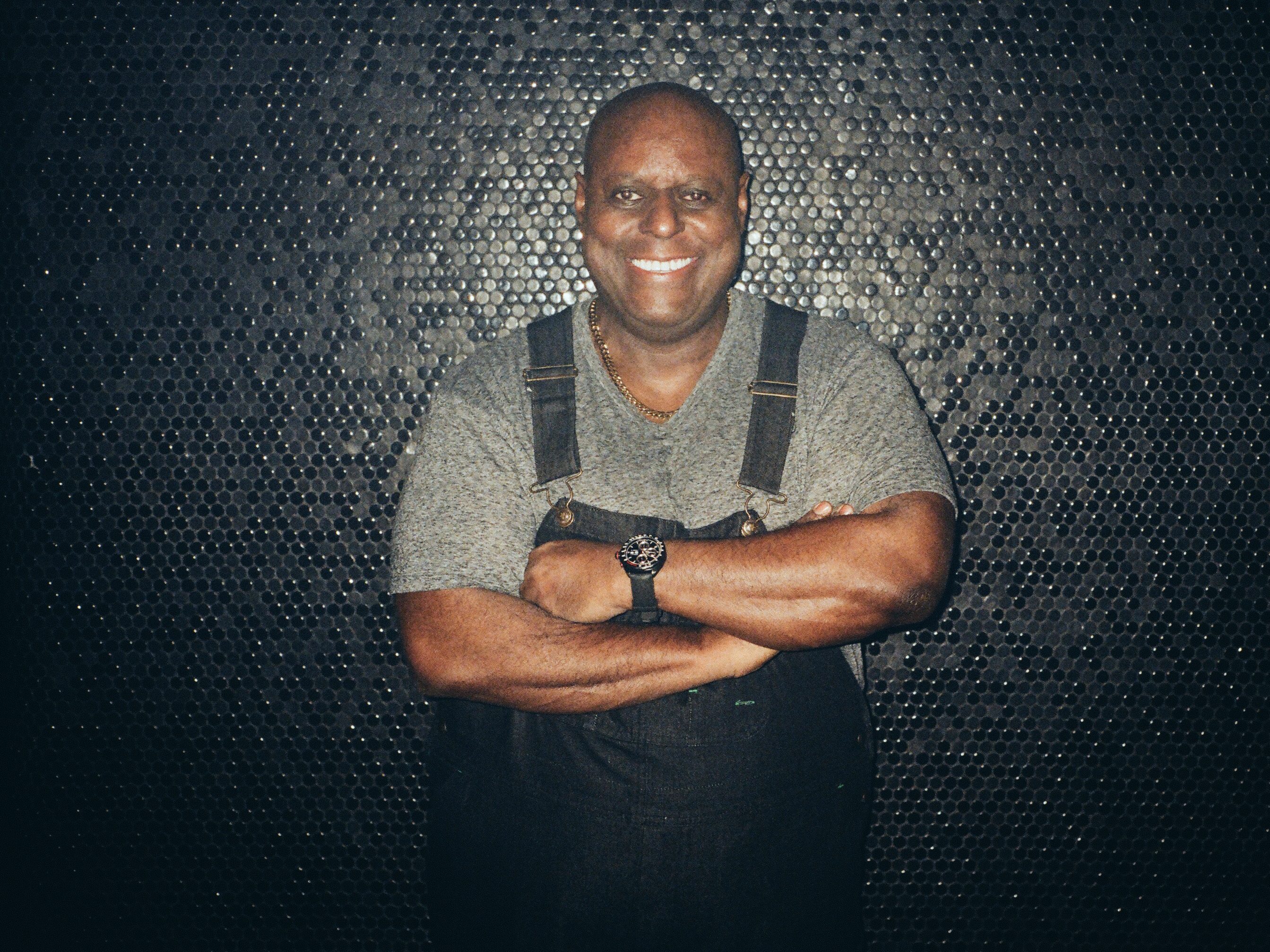
“… you can’t let the crowd intimidate you, you know? No one’s gonna be perfect but if you make a mistake, you know you can come back.”
Do you still have the time to find new music? Because seems like back then you were like…
… getting it from all over the place. Yeah! Look, to me it’s no different today than it was back then. I get it from all sources. There are three or four different sections that I get stuff from, you know. Let’s say per month, usually it’s a folder of hundred-something records that you got to go through, and we section them off into hype songs, soulful songs, soulful female songs, alternative songs, Latin songs, samba songs, slow bpm songs. We just have them divided into folders like that and try to pick the best ones and that’s how I keep up. I’m always into getting new stuff ‘cos I like to show how close it is to stuff that I used to play. Sounds are so identical sometimes, it’s unbelievable, you know? And of course, a lot of the producers now go back to what worked back then, they figured it’s safe, they try to make that money, you know. It’s a gift for us, you know, to do that. For a minute, stuff in the late ‘90s or the ‘00s sounded like stuff in the ‘80s, sounded exactly like it! I used to go back and forth. But I think it’s a good time. Right now, in my opinion. I’m just one person, it’s back to the default to where no particular genre is killing the other one. I think it’s wide open, you can play anything, any type of record, any type of genre, the key is what order do you play it. How do you keep people’s attention over a long period of time – that is the art. If you can figure out the art of how to keep a room going; a new DJ now would just be as powerful as one of us older guys or whatever. It’s zero-zero right now. That’s gonna separate everyone. If you can handle two, three hours, four hours, and people are still periodically going crazy, you’re the man, doesn’t matter what you play. I’ll play anything if it’s just the right time to play. And if you happen to play the wrong thing, you just think it’s five minutes of your time and you know what to come back with, it’s almost like playing basketball and missing a shot, you know what your next shot’s gonna be to come back. So, that’s the way I think. If you’re organised, you got twenty of the section, twenty of that type, twenty of that type, it’s confidence. That’s where the confidence comes from with me. But if you’re not organised, you’re scrambling and then you’re playing the same shit all over again… So you can’t let the crowd intimidate you, you know? No one’s gonna be perfect but if you make a mistake, you know you can come back. That’s the key.
Tony Humphries played at RBMA Pres. No Sleep Til Zanzibar at Legato, Tokyo on Friday 7 November ’14.
www.tonyrecords.net
www.tonyhumphries.com

 Get Audio+
Get Audio+ Hot FM
Hot FM Kool 101
Kool 101 Eight FM
Eight FM Fly FM
Fly FM Molek FM
Molek FM